Assalamu Alaikum wa Rahmatullahi wa Barakatuhu (May the Peace and Blessings of God be showered onto you)! My name is Nasar Qureshi, and I am a recent graduate from Loyola University’s College of Arts and Sciences. Throughout my time at Loyola, I double-majored in Cognitive-Behavioral Neuroscience and Biology, while minoring in Islamic Studies and Arabic Language & Culture Minor. As a Muslim born to non-Arab parents (my family hails from India), I always understood the importance of Arabic as it relates to my religion. However, from a young age, I was only taught how to read, write, and pronounce Arabic without being able to understand it. Many non-Arabs learn Arabic in this manner to allow them to read from and memorize portions of the Holy Qur’an, the sacred text for Muslims.
As a child, I enjoyed reading stories about the Prophets of Islam, such as Jesus, Muhammad, Moses, Joseph, Abraham, and others. I also enjoyed memorizing portions of the Qur’an after learning how to read Arabic. However, I wasn’t able to understand the actual words that I was reading and memorizing. Sensing my love of memorizing and reciting the Qur’an, my parents put me in a program to memorize the Holy Text in its entirety: I spent 2 years memorizing the Qur’an. After completing my memorization of the Qur’an, I continued with my Islamic Studies by studying under local Scholars and programs. Unfortunately, the fact that I hadn’t properly learned Arabic served as a hindrance to my potential as a student, teacher, and community leader. I knew that I was at a disadvantage as the majority of Islamic texts are in Arabic. Due to the beauty of the Arabic language, these texts are extremely difficult to translate, and the thought-provoking and reflective meanings are lost when the text is not read in Arabic. As such, when I heard about the Arabic Minor at Loyola, I knew that it was an excellent opportunity for me to develop my skills in Arabic Language comprehension.
My time with the Arabic minor at Loyola was nothing short of engaging and productive. ustaadha Sawsan did a marvelous job of focusing on vocabulary, grammar, and pronunciation; She encouraged students to practice what they’ve learned through projects, skits, discussions of current events, and conversations among classmates, friends, and families. After taking Arabic 101-104, I was able to identify many Arabic words from the Qur’an and apply them to understanding the deeper meaning of the text. This allowed me to connect with the Qur’an in a way I had not been able to do beforehand, and I felt spiritual growth through a newfound understanding of verses and passages. I elected to continue my focus on understanding Arabic for the purpose of spiritual growth by taking Arabic 251, which was a one-on-one class with ustaadha Sawsan where I could focus on reading a chapter from the Qur’an, understanding it, and making relevant connections between the chapter and my own spiritual growth. I have also been appointed by ustaadah Sawsan to work as an Arabic Language Coach last year- a position that serves new learners in Arabic oral skills.
In Arabic 251, I studied Chapter 12 of the Qur’an, the chapter of Prophet Joseph. This chapter is unique in the Qur’an as it tells the story of Prophet Joseph’s struggles and how those struggles led him to become a Royal Minister in Egypt. Throughout my sessions with ustaadha Sawsan, I learned about the usage of different words and how the changing of lettering can yield completely different meanings. After every session with ustaadha, I left feeling stronger spiritually, and I connected whatever I learned to my daily life. Thanks to ustaadha Sawsan’s help, the chapter of Joseph remains one of my favorite chapters in the Qur’an, and I have continued my studies by examining other chapters in the Qur’an and dissecting their meanings.
My time learning Arabic at Loyola was merely a dip into the ocean of knowledge regarding such a beautiful and poetic language. I want to continue my studies by diving deeper into grammar and vocabulary, and I hope to practice what I’ve learned by dissecting scholarly texts of Islam and studying in the Middle East. I recommend all those interested in religion, culture, language, and humanities to study Arabic, as it will resonate with you in a myriad of ways and be applicable to whatever you end up pursuing.

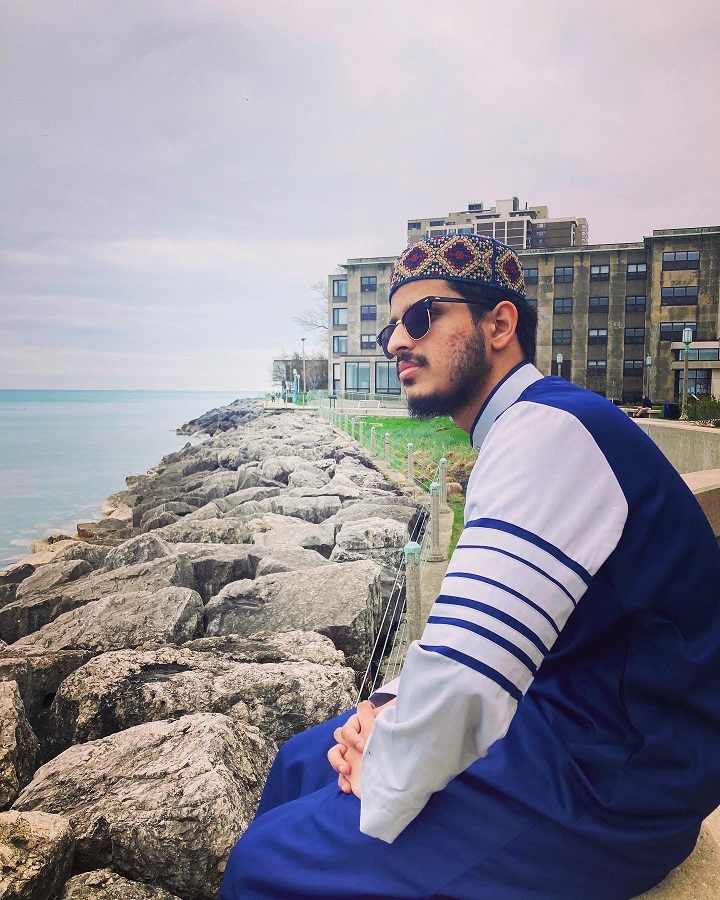
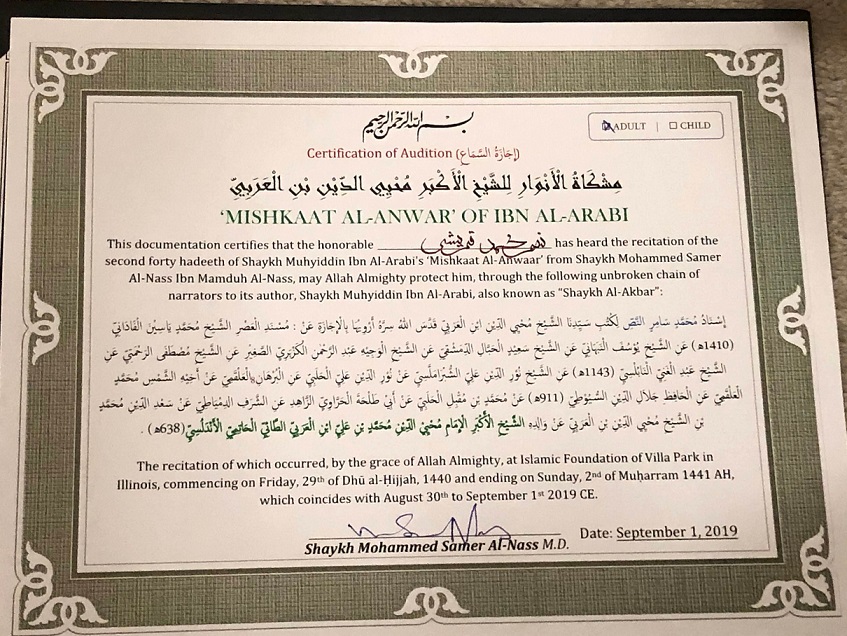
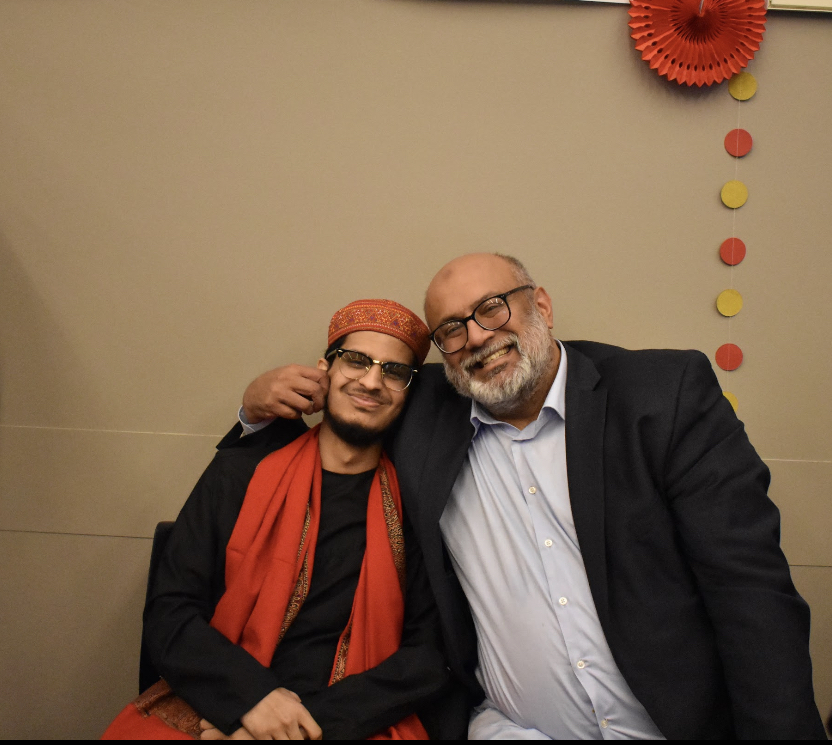
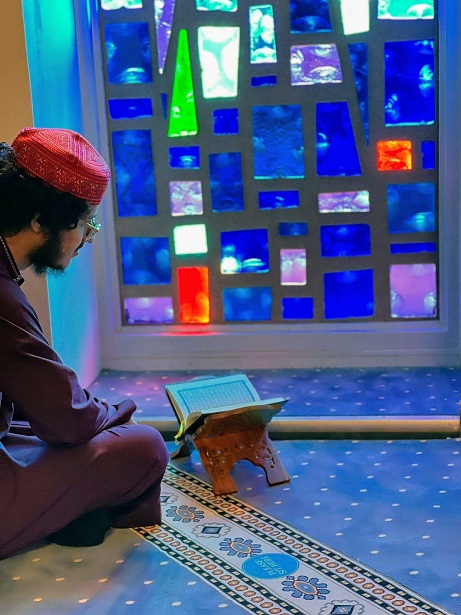
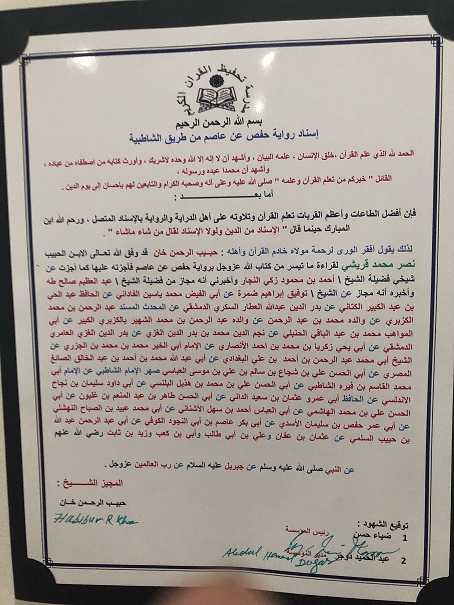
What a beautiful, beautiful story and journey. Dr. Abbadi is Loyola’s treasure.
Thank you for your words!
Susana Cavallo, Professor of Spanish, Loyola